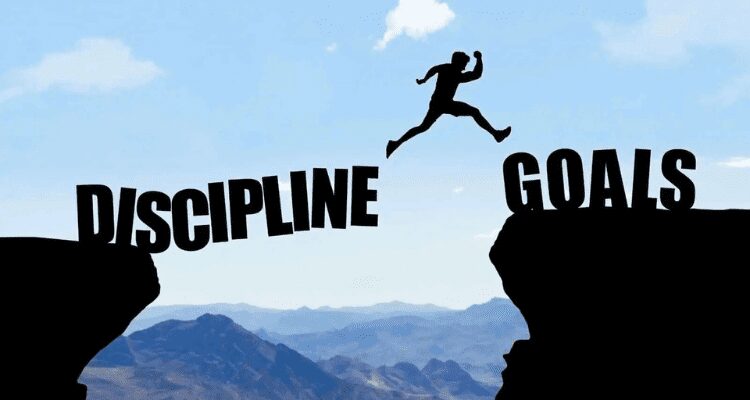In a world full of distractions, temptations, and instant gratification, discipline and self-discipline have become essential skills for anyone who wants to lead a successful, meaningful, and productive life. Whether you’re aiming to improve your health, grow your career, build better habits, or simply become more in control of your actions, mastering discipline is the foundation.
This in-depth guide will explore the meaning of discipline and self-discipline, why they matter, the psychology behind them, the difference between the two, and, most importantly, how to build and maintain them in your everyday life.
What Is Discipline
Discipline is the practice of training people or yourself to obey rules or a code of behavior, often using punishment or reinforcement to correct disobedience. However, modern psychology and personal development define discipline more positively — it’s the ability to stay consistent, focused, and committed to a task or goal, even when it’s hard.
Discipline is not only external (like school rules, laws, or workplace expectations) but also internal, driven by personal standards, goals, and routines. It’s what keeps you on track when motivation fades.
What Is Definition of Self-Discipline
Self-discipline is the ability to control your thoughts, emotions, and behaviors in pursuit of long-term goals. Unlike discipline that can be imposed externally, self-discipline is internal. It’s a form of self-control, willpower, and inner strength that helps you delay gratification, resist short-term temptations, and do what’s necessary even when you don’t feel like it.
Self-discipline is what drives a person to:
- Wake up early to exercise.
- Study instead of binge-watching Netflix.
- Stick to a budget or diet.
- Say “no” to distractions or toxic habits.

The Difference Between Discipline and Self-Discipline
While the two terms are closely related and often used interchangeably, there are subtle differences:
| Discipline | Self-Discipline |
|---|---|
| Can be externally enforced | Internally driven |
| Often involves systems, rules, or consequences | Based on personal willpower and commitment |
| May come from parents, teachers, bosses | Comes from your own internal values and goals |
That said, both discipline and self-discipline are crucial. External discipline creates structure, while self-discipline builds character.
Why Discipline and Self-Discipline Matter in Life
1. Achieving Long-Term Goals
Success rarely happens overnight. It’s the result of small, consistent actions taken over time. Self-discipline helps you stick with your goals long enough to see results.
2. Building Strong Habits Based on Self-Discipline
Habits shape your life more than you realize. With consistent discipline, you can develop positive habits that support your goals.
3. Boosting Productivity

Discipline helps you prioritize important tasks, avoid procrastination, and stay focused. This leads to better time management and higher output.
4. Enhancing Mental Health
A lack of discipline can lead to chaos, stress, and guilt. On the other hand, self-discipline brings order, clarity, and a sense of control over your life.
5. Becoming More Resilient
Life throws challenges at everyone. Those with high self-discipline can better handle stress, recover from setbacks, and keep moving forward.
6. The Psychology Behind Self-Discipline
Psychologically, self-discipline is linked to the prefrontal cortex — the part of the brain responsible for decision-making, planning, and impulse control. People with stronger neural connections in this area tend to have higher self-control.
Factors that influence self-discipline:
- Willpower: A limited resource that can be depleted but also trained like a muscle.
- Motivation: While useful, it’s unreliable. Discipline takes over when motivation fails.
- Delayed Gratification: The ability to wait for a better outcome is a key trait of disciplined individuals (as seen in the famous “marshmallow experiment”).
The 3 Myths About Discipline & Self-Discipline
Let’s bust some common myths:
Myth 1: “You either have it or you don’t”
Truth: Discipline can be learned and trained through consistent practice.
Myth 2: “Discipline is boring or rigid”
Truth: It brings freedom by giving you control over your time and energy.
Myth 3: “Motivation is better than discipline”
Truth: Motivation is fleeting. Discipline is what gets you results in the long term.
How to Build Discipline and Self-Discipline
1. Set Clear and Specific Goals to Build Self-Discipline
You can’t be disciplined if you don’t know what you’re aiming for. Break large goals into smaller, actionable steps.
2. Create a Routine to Build Your Discipline
Discipline thrives in routine. Set a daily or weekly structure to reduce decision fatigue and stay on track.
3. Use the Power of Habits
Start small and stack habits using the formula: “After I [current habit], I will [new habit].”
4. Eliminate Temptations and Distractions
Make the disciplined choice the easy choice. Turn off notifications, clean your workspace, and plan ahead.
5. Track Your Progress While Building Self-Discipline
Use journals, habit trackers, or apps to measure consistency. Small wins build confidence and momentum.
6. Develop Mental Toughness
Push yourself to do things even when you don’t feel like it. The more you resist comfort, the stronger your self-discipline becomes.
7. Practice Self-Compassion
You will fail sometimes. Don’t beat yourself up. Reflect, adjust, and get back on track.
8. Find Your “Why”
A strong purpose fuels long-term discipline. Connect your actions to your deeper values and goals.
Self-Discipline in Different Areas of Life
1. Health and Fitness:
- Sticking to workouts and meal plans.
- Avoiding emotional eating or junk food.
- Getting enough sleep.
2. Career and Business:
- Meeting deadlines.
- Prioritizing deep work over distractions.
- Continuous learning and self-development.
3. Personal Finance:
- Budgeting and saving.
- Avoiding impulse spending.
- Investing wisely.
4. Relationships:
- Communicating calmly.
- Keeping commitments.
- Being present and patient.
5. Personal Growth:
- Reading regularly.
- Journaling and reflecting.
- Practicing gratitude and mindfulness.
6. Tools and Resources to Build Discipline:
- Books:
- Atomic Habits by James Clear
- Deep Work by Cal Newport
- The Power of Self-Discipline by Brian Tracy
- Apps:
- Habitica
- Streaks
- Forest
- Techniques:
- Pomodoro Technique
- 5-Second Rule
- Time Blocking
Discipline Means Freedom
In the end, discipline and self-discipline are not about restriction — they’re about freedom. The freedom to live a life aligned with your goals. The freedom to say no to distractions. The freedom to become who you truly want to be.
If you want to build a better life, build better discipline. Start small. Be consistent. Show up daily. And remember: you are always one decision away from changing your future. And that’s it for today’s inspiration. Make sure to check out my new Instagram collection of beautifully crafted motivational quotes to inspire your day HERE!
- Related Content: Habits Guide: How to Form Good Habits


